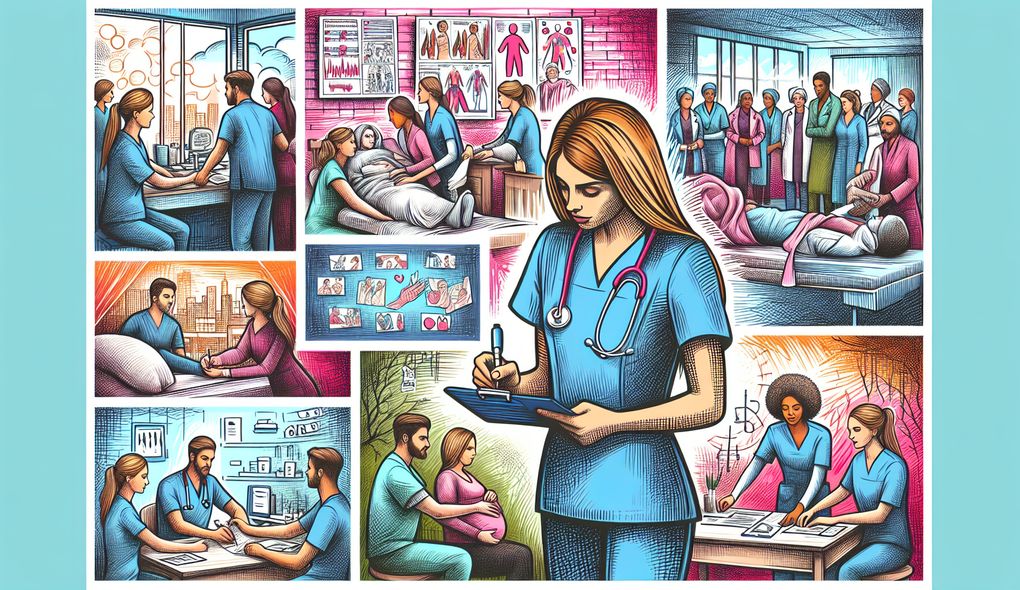Tell us about your experience in conducting comprehensive patient assessments.
JUNIOR LEVEL

Sample answer to the question:
In my past role as a Junior Acute Care Nurse Practitioner, I had the opportunity to conduct comprehensive patient assessments on a regular basis. I would start by gathering the patient's medical history, including any previous diagnoses and treatments. I would then perform a physical examination, assessing vital signs, neurological function, and overall condition. I would also order and interpret diagnostic tests, such as blood work and imaging, to further evaluate the patient's health status. Based on my findings, I would develop a care plan tailored to the patient's specific needs and collaborate with the multidisciplinary healthcare team to ensure the best possible outcome. Throughout the assessment process, I would communicate and provide education to the patient and their family, ensuring they understand their health condition and treatment options. Overall, I have gained valuable experience in conducting comprehensive patient assessments and delivering high-quality care.
Here is a more solid answer:
Throughout my role as a Junior Acute Care Nurse Practitioner, I have gained substantial experience in conducting comprehensive patient assessments. I have honed my clinical expertise by meticulously gathering the patient's medical history, performing a thorough physical examination, and ordering appropriate diagnostic tests to ensure a comprehensive evaluation of their health status. Collaboration with the healthcare team has been crucial in providing the best care possible, as I regularly engage in multidisciplinary discussions to discuss patient cases, share knowledge, and ensure coordinated care. I am proficient in using medical software and patient care management systems, which enhances my ability to track and manage patient information efficiently. Furthermore, I have consistently demonstrated my ability to respond to emergency situations by remaining calm under pressure and taking prompt and appropriate interventions to stabilize the patient. Overall, my experience has equipped me with the skills and knowledge necessary to conduct comprehensive patient assessments and deliver optimal care.
Why is this a more solid answer?
The solid answer expands upon the basic answer by providing more specific details about the candidate's clinical expertise, collaboration with the healthcare team, and response to emergency situations. It also highlights the candidate's proficiency in using medical software and patient care management systems, aligning with the skills mentioned in the job description. However, it can be further improved by providing specific examples of the candidate's ability to manage multiple patient care priorities simultaneously and their knowledge of pharmacology, which are also mentioned in the job description.
An example of a exceptional answer:
In my role as a Junior Acute Care Nurse Practitioner, conducting comprehensive patient assessments has been a cornerstone of my practice. I approach each assessment with meticulous attention to detail, ensuring that no aspect of the patient's health is overlooked. For example, when evaluating a patient with acute respiratory distress, I not only assess their lung sounds, oxygen saturation, and respiratory rate but also consider potential cardiac involvement by monitoring for pedal edema, jugular vein distention, and auscultating heart sounds. This comprehensive approach allows for a holistic understanding of the patient's condition and facilitates the development of an individualized care plan. Collaboration with the healthcare team is integral to my practice as well. I actively engage in interdisciplinary rounds, ensuring seamless communication and coordination of care. By leveraging my excellent communication skills and fostering an environment of mutual respect, I contribute to the successful management of complex cases, where multiple healthcare professionals are involved. Additionally, I have a strong foundation in pharmacology, enabling me to develop safe and effective treatment plans for patients with acute medical conditions. For instance, during my time in the ICU, I managed a diverse range of patients, including those with sepsis, acute myocardial infarction, and stroke, and accurately prescribed appropriate medications to optimize their outcomes. In emergency situations, I remain calm and composed, relying on my advanced training in ACLS and my experience in managing critical cases to provide prompt and life-saving interventions. By staying up-to-date with the latest evidence-based practices, I ensure the quality of healthcare practices and compliance with standards and regulations. My commitment to continuous professional development is reflected in my participation in educational conferences and pursuing additional certifications relevant to acute care. In summary, my extensive experience in conducting comprehensive patient assessments, combined with my clinical expertise, collaboration skills, pharmacological knowledge, and ability to respond to emergency situations, make me a highly qualified candidate for this position.
Why is this an exceptional answer?
The exceptional answer provides specific and detailed examples of the candidate's experience and capabilities in conducting comprehensive patient assessments. It demonstrates their ability to approach assessments with a holistic perspective and provides specific examples of their ability to collaborate with the healthcare team, their knowledge of pharmacology, and their ability to respond to emergency situations. The answer also highlights the candidate's commitment to quality healthcare practices and continuous professional development. Overall, this answer showcases the candidate's exceptional qualifications for the role of an Acute Care Nurse Practitioner.
How to prepare for this question:
- Review and familiarize yourself with different assessment techniques and tools used in acute care settings.
- Stay updated with the latest advancements in pharmacology and its application in acute medical conditions.
- Practice and enhance your collaboration and communication skills by actively engaging in multidisciplinary healthcare discussions.
- Prepare examples from your past experiences that demonstrate your ability to manage multiple patient care priorities simultaneously.
- Review emergency protocols and ensure you are familiar with the latest guidelines for ACLS.
- Stay informed about current healthcare standards and regulations, and how they impact patient assessments and care practices.
What are interviewers evaluating with this question?
- Clinical expertise
- Collaboration with healthcare team
- Diagnostic tests and procedures
- Medication management
- Patient education and support
- Quality of healthcare practices
- Ability to respond to emergency situations

